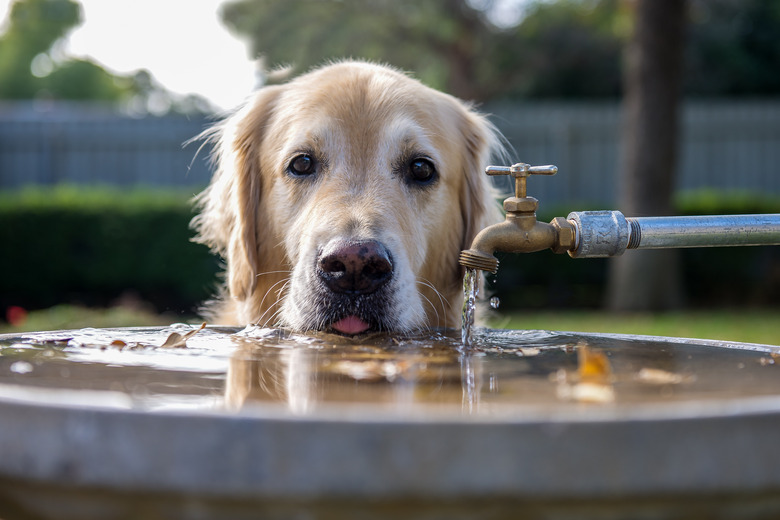What Makes A Dog Pant When He Is Not Hot Or Thirsty?
A dog panting when not hot may be experiencing a respiratory, cardiovascular, or neurological health problem, or feeling stressed, anxious, nervous, or excited. Since dogs can't tell us how they're feeling, they communicate through nonverbal cues like panting: You just need to listen. A dog panting when not hot can indicate a number of health concerns that may require further evaluation from your vet.
Running a fever
Running a fever
Your dog might not be overheated from physical exertion, but he or she may be running a fever due to an underlying issue. Elevated body temperature can be indicative of the immune system fighting infection. A dog's temperature typically runs normal at 102.5 Fahrenheit, so you should consult your vet for anything above that reading.
Obesity causes panting
Obesity causes panting
Heavy dogs can struggle to breathe more than their fit canine counterparts. Extra body weight may compress the lungs so it takes more effort for your dog to move the air. Panting is the body's way of increasing airflow by causing the dog to breathe heavily to get oxygen. Reduce your dog's struggle by consulting with your vet about a weight-loss program.
Symptom of health disorders
Symptom of health disorders
Panting with no apparent reason can signal the presence of various disorders. Respiratory, cardiovascular, blood, and neurological issues are typically associated with heavy breathing as the body responds to being compromised.
Respiratory disorders may cause panting as dogs can't breathe normally. This can mean dogs have trouble inhaling because of nasal blockages and growths or a collapsing trachea; it could also be because they are have fluid or tumors in the lungs or chest, lung disease, diaphragmatic hernias, or asthma. Cardiovascular causes can include lung disorders like heartworm, blood clots, or blockages, or heart disease and heart failure.
Other potential causes can also include:
- Anemia or carbon monoxide poisoning.
- Head trauma or brain tumor.
- Drug poisoning and side effects from certain medications
- High altitude, diabetes, or pregnancy.
Anxiety, fear, stress, and excitement
Anxiety, fear, stress, and excitement
If you've ever seen how some dogs react during thunderstorms or fireworks, then you understand why dogs pant when they're fearful or anxious. Panting is a natural reaction to a new environment, so if you've just moved or brought a puppy home for the first time, know that their panting may decrease after a few days.
By the same token, your dog's enthusiastic greeting when you come home is a happy experience that increases his respiration. Keep a calm demeanor when your dog seeks you out for comfort so as not to increase his or her anxiety. Your dog may also want the safety of a dark closet or beneath a bed the same way children head under the covers when they're scared.
Prevent excessive panting in dogs
Prevent excessive panting in dogs
You may not be able to deter serious underlying health conditions, but you can ensure that dogs aren't overexerting themselves. Don't walk your precious pup outside in the heat for an excessive amount of time, as it can lead to overheating and panting. Give a dog thirsty and panting water and a chance to cool off in the shade or air conditioning. Provide dogs with a stress-free environment and a place of their own, like a crate or bed, where they can retreat to when they need alone time.
Dog panting when not hot
Dog panting when not hot
Dogs are extremely good at disguising pain, so always pay attention to their body language and take note of any sudden changes. If you see any of the following symptoms, or if your dog is panting more often than in the past, take them to the veterinarian.
- Fever
- Pale or blue gums
- Excessive tiredness
- Panting for more than 15 minutes
- Struggling to breathe
Diagnosing panting in dogs
Diagnosing panting in dogs
Veterinarians will consider your dog's health history and run tests to determine what's causing the panting. This may include running blood tests, ordering x-rays to check their chest and abdomen, and potentially other tests to check their organs and heart. Treatment will depend on diagnosis.
